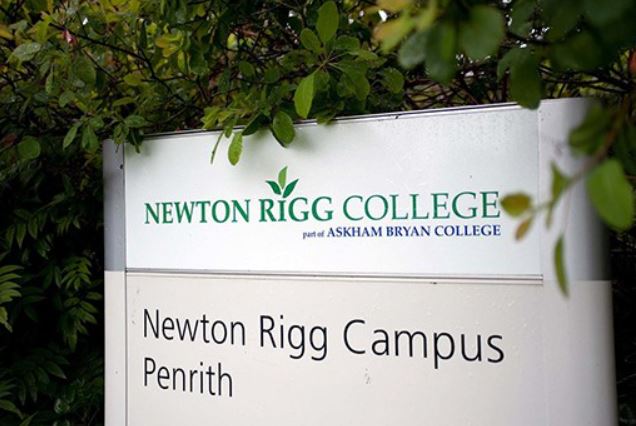
The operator of Newton Rigg has denied selling off the Penrith campus will prop up its own organisation in front of a group of leading MPs.
Dr Tim Whitaker, chief executive of Askham Bryan College, and Judith Clapham, its director of governance, were summoned to appear before the Environment, Food and Rural and Affairs Select Committee as part of an inquiry into land-based education.
Dr Whitaker was asked several times by MPs about an agreement signed in 2011 that superseded a covenant that the land would be used for educational purposes.
He repeatedly answered that it occurred before his time at the college “and it was a question better asked of the people in charge at the time”.
Committee member Barry Gardiner asked if the sale of Newton Rigg was really just to save Askham Bryan as a going concern and he accused Askham Bryan of ‘asset stripping’.
He said the people of Cumbria felt as though Askham Bryan has plated a ‘three card trick’ on them.
He said: “Newton Rigg showed a £300,000 profit for four years before the accounts were amalgamated with Askham Bryan.
“Is Newton Rigg being run down and sold off to prop up Askham Bryan?”
He asked if the plan was to bail out Askham Bryan by using Newton Rigg.
Dr Whitaker denied asset stripping, saying it was not the case and that Newton Rigg was failing.
He told MPs: “I can provide a note saying there was a £250,000 deficit as far back as 2014.”
Mr Gardiner repeatedly challenged Dr Whitaker and said: “My question is this. How did you allow this happen?”
When Dr Whitaker repeated that it was before his time and he could not comment on it, Mr Gardiner responded: ‘You’ve got the papers as I have. You really want this parrot dead don’t you?”
Dr Whitaker told the MPs that it was a difficult decision for Askham Bryan to close Newton Rigg and they were aware of the strength of feeling in Cumbria.
He has been asked to provide answers in writing to the committee.
Also appearing at the inquiry were Lord Inglewood, chairman of Cumbria Local Enterprise Partnership and Jo Lappin, the partnership’s chief executive.
Lord Inglewood told the MPs: “In the case of Newton Rigg, with the benefit of hindsight, a lot of decisions were made or not made which looking back now were a mistake.”
Mrs Lappin said: “It would be totally counterintuitive not have a specialist college in Cumbria.
“It’s got to be available, attractive and accessible – we make up more than half the land mass of the North West. We’re talking beyond 70 miles for learners to access education.”
Geraint Davies asked if it was possible that the Newton Rigg assets be returned to Cumbria, would the local enterprise partnership be able to commit £7.5 million of Borderlands funds to make it work.
Mrs Lappin said that Borderlands cash was co-ordinated by a different body and added that it had offered Growth Deal funding previously, but no proposal had come forward and now that cash had been allocated.
Lord Inglewood said: “As of today, we’re very broke. But we will bust a gut to make sure land-based education stays in Cumbria.”
The pair added they would be right behind any proposal.
The first session heard from Tom Bradshaw, vice president, National Farmers Union; Shireen Chambers, executive director, Institute of Chartered Foresters and Alex Payne, chief executive, Landex.
The trio set the scene for the committee about land-based education generally and the future of agriculture.
The select committee will now put together a report about land-based education to present to Parliament.
We have launched a petition to save Newton Rigg. More than 3,000 people have already signed it – please add your name and share it with your friends and family.








